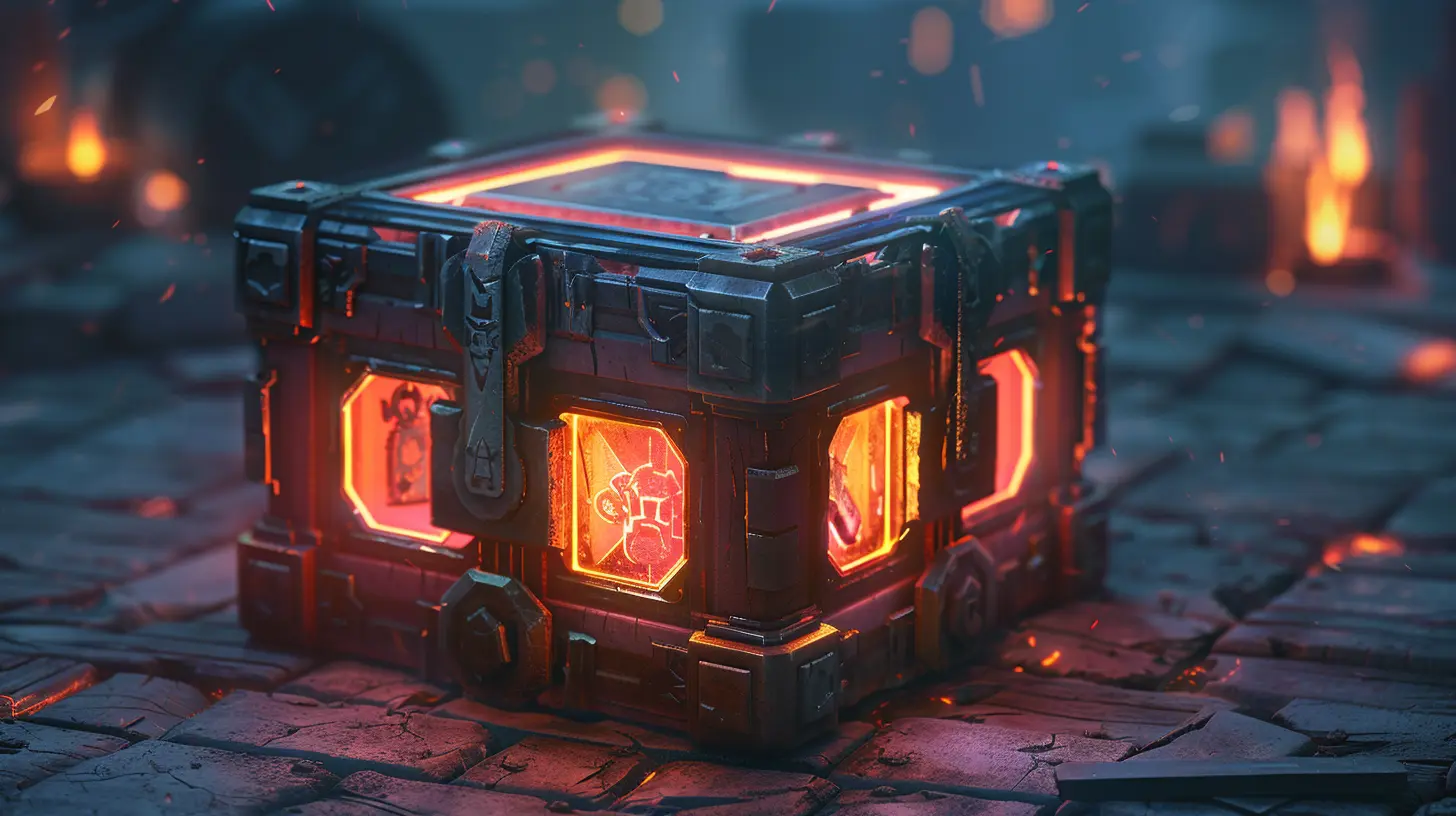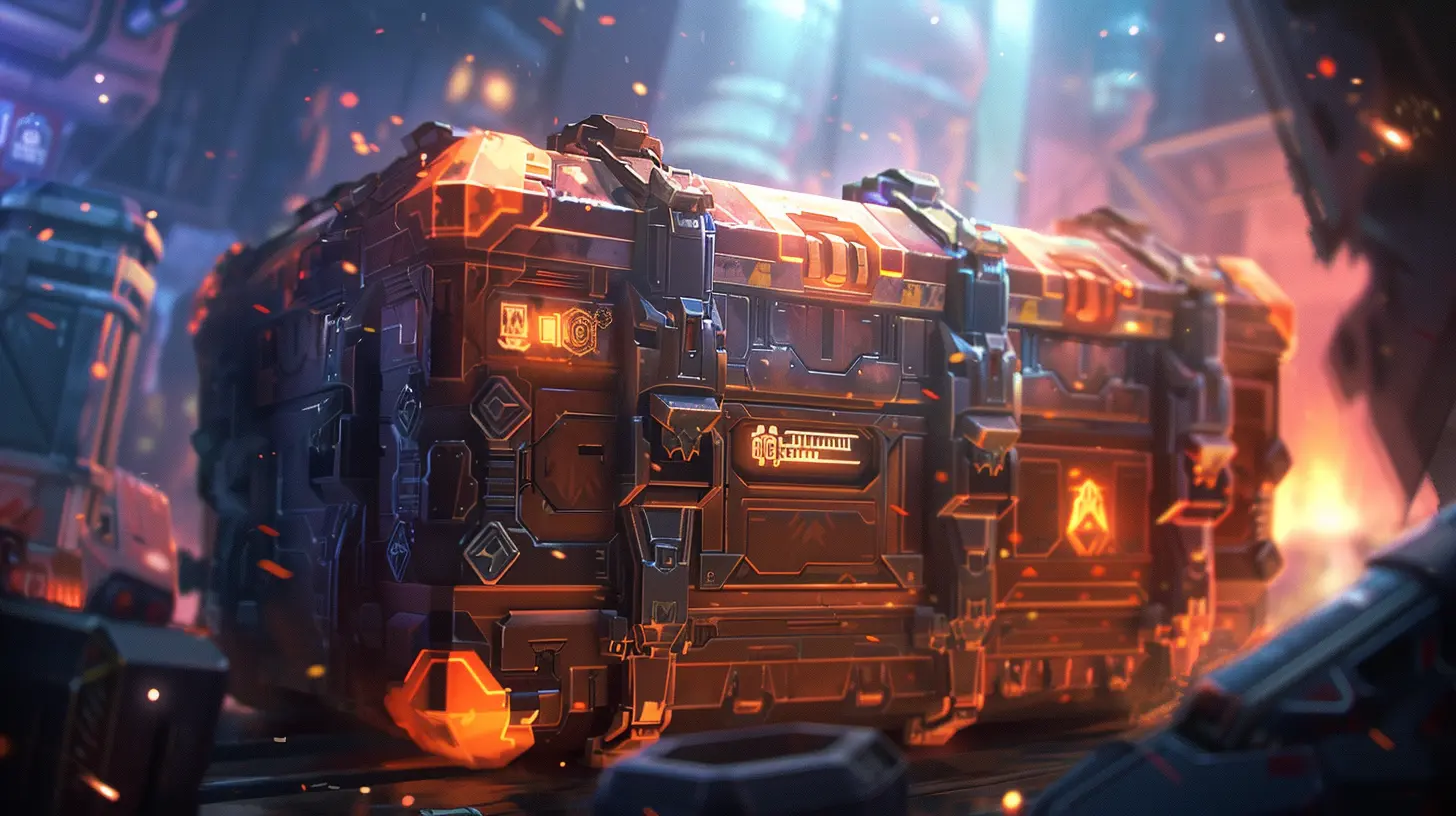How the Gaming Industry Is Shifting Away from Loot Boxes
5 November 2025
Loot boxes—those flashy, mysterious in-game crates popping with promise—have shaped the gaming landscape for over a decade. You’ve probably opened one or two (or a hundred), hoping to score that rare skin or weapon everyone in your squad brags about. But lately, you might’ve noticed a change. Big-name developers and publishers are slowly stepping back from loot boxes, and gamers all over the world are breathing a sigh of relief.
So, what’s really going on here? Why are loot boxes losing their grip on the gaming industry? Let’s dive deep into this transformation that’s reshaping how we play, spend, and enjoy our favorite digital adventures.
What Are Loot Boxes, Anyway?
Before we unpack why the industry is shifting away from them, let’s make sure we’re on the same page.Loot boxes are virtual items that players can purchase (with in-game currency or real money) to receive random rewards. Think of them as digital slot machines—sometimes you hit the jackpot, most times you get...meh. This randomness, combined with real-world cash, is why they’ve ruffled so many feathers.
The Rise and Fall of Loot Boxes
The Glory Days
Not too long ago, loot boxes were the golden goose for game studios. Games like Overwatch, FIFA, and CS:GO earned hundreds of millions from players chasing rare items. Developers loved them because they brought in loads of recurring revenue without needing to raise game prices.The Backlash
But the party didn’t last forever.Gamers began noticing that loot boxes weren’t just cosmetic anymore—they started affecting gameplay. Pay-to-win mechanics crept in. Imagine joining a match and immediately realizing someone bought their way to superiority. Not cool, right? This sparked outrage and started drawing attention from lawmakers and regulators.
The Legal Storm: Governments Step In
All that money flowing into loot boxes? Yeah, it didn’t go unnoticed.Several countries, including Belgium, the Netherlands, and the UK, began investigating loot boxes as a form of gambling—especially since kids were often the ones spending big without fully understanding the odds.
In Belgium, loot boxes were straight-up banned in some games. EA even had to remove FIFA’s Ultimate Team packs from the region. That’s huge, considering FIFA’s packs were a major cash cow.
Meanwhile, the UK House of Lords recommended regulating loot boxes under gambling laws. The message was loud and clear: it’s time to clean up.
Gamers Are Wising Up
Let’s be honest—loot boxes might have been fun at first, but gamers are smarter now. We’ve started asking important questions like:- Why am I paying real money for a chance instead of a guarantee?
- Is this fun, or am I being manipulated?
- Are these mechanics fair to all players?
The answers? Not very encouraging.
More and more players are choosing games that are transparent with rewards and don’t rely on random chance to keep them invested. This shift in player mindset is pushing developers to rethink monetization strategies.
Developers Are Listening (Finally)
The Shift to Battle Passes
One of the biggest alternatives to loot boxes is the battle pass model. If you’ve played Fortnite, Apex Legends, or Call of Duty: Warzone, you’ve seen it in action.Here’s why battle passes rock:
- You know exactly what you’re getting.
- You earn items by playing, not gambling.
- It rewards time, not just cash.
It’s a win-win. Developers still make money through seasonal purchases, and players feel like they’re progressing toward something real.
Cosmetic Stores & Direct Purchases
Games like Valorant and League of Legends have ditched loot boxes altogether in favor of item shops. You want that cool skin? You buy it. No BS, no RNG.Transparency is becoming the new gold standard. And it’s working. Players are more likely to spend money when they know what they’re getting.
Let’s Talk Ethics: Why This Matters
Here’s where we get real.Loot boxes often prey on psychological triggers—the same ones used in gambling. That’s especially dangerous for younger players who haven’t built up the same level of self-control or awareness of consequences.
There’s also the issue of fairness. When one player can spend hundreds to get an in-game advantage, what happens to the folks who can’t—or don’t want to—fork over cash? The playing field gets tilted, and competitive integrity goes out the window.
By moving away from loot boxes, the gaming industry is showing it can still be profitable without compromising ethics. That means more inclusive, balanced, and honest gaming experiences for everyone.
The Impact on Esports and Competitive Gaming
In the esports world, fairness is everything.Imagine watching a major tournament and realizing a player won because they had a better, purchased loadout. That kills the excitement and ruins the competition.
That’s why many esports-focused games are ditching loot boxes or removing competitive advantages from them. Titles like Rocket League and CS:GO have made changes to ensure the playing field remains level.
As loot boxes fade, we’re likely to see a healthier, more competitive environment emerge—one where skill, not spending, determines the winner.
Mobile Games: The Final Frontier?
Now, while console and PC games are slowly letting go of loot boxes, mobile games are still hanging on tight.Why? Simple—money.
Mobile games like Genshin Impact and countless gacha-style RPGs still make BANK using loot box mechanics. In these games, players "pull" for characters or gear with random results. It’s addictive and lucrative, especially in markets like Asia where this model is deeply entrenched.
That said, even mobile gaming is seeing pushback. Players are calling for better odds, more transparency, and alternative ways to earn content. It'll take time, but the pressure is mounting.
What’s Next? The Future Beyond Loot Boxes
Let’s look ahead.The fall of loot boxes doesn’t mean in-game monetization is dying. Far from it. But it’s evolving into something better and more sustainable.
Here’s what we’re likely to see more of:
- Subscription models (like Xbox Game Pass or EA Play)
- One-time DLC purchases with clear value
- Seasonal content updates that refresh the game without pushing RNG
- Player-driven economies where you trade or craft items
And honestly? That’s a future we can all get behind.
There’s still a long road ahead, especially in regions where regulation is slow. But the direction is clear: fairness, transparency, and respect for player time and money are becoming the industry norm.
Final Thoughts: Why This Shift Matters to You
If you’ve ever felt burned by a loot box... you’re not alone.This shift away from predatory monetization isn’t just a win for your wallet—it’s a win for the heart of gaming. It’s about putting the fun back into play. It’s about developers respecting gamers and crafting experiences that reward effort, not just spending.
So next time you boot up a game and notice the absence of loot boxes? Give the devs a little nod. They heard us. And together, we’re building a better gaming future—one fair level at a time.
all images in this post were generated using AI tools
Category:
Loot BoxesAuthor:

Pascal Jennings
Discussion
rate this article
1 comments
Simon Baxter
Great insight! It's refreshing to see the gaming industry moving away from loot boxes. Emphasizing fairness and player experience will definitely shape a brighter future for gaming.
November 10, 2025 at 3:59 PM

Pascal Jennings
Thank you! I completely agree—prioritizing fairness and player experience is key to a healthier gaming landscape.


